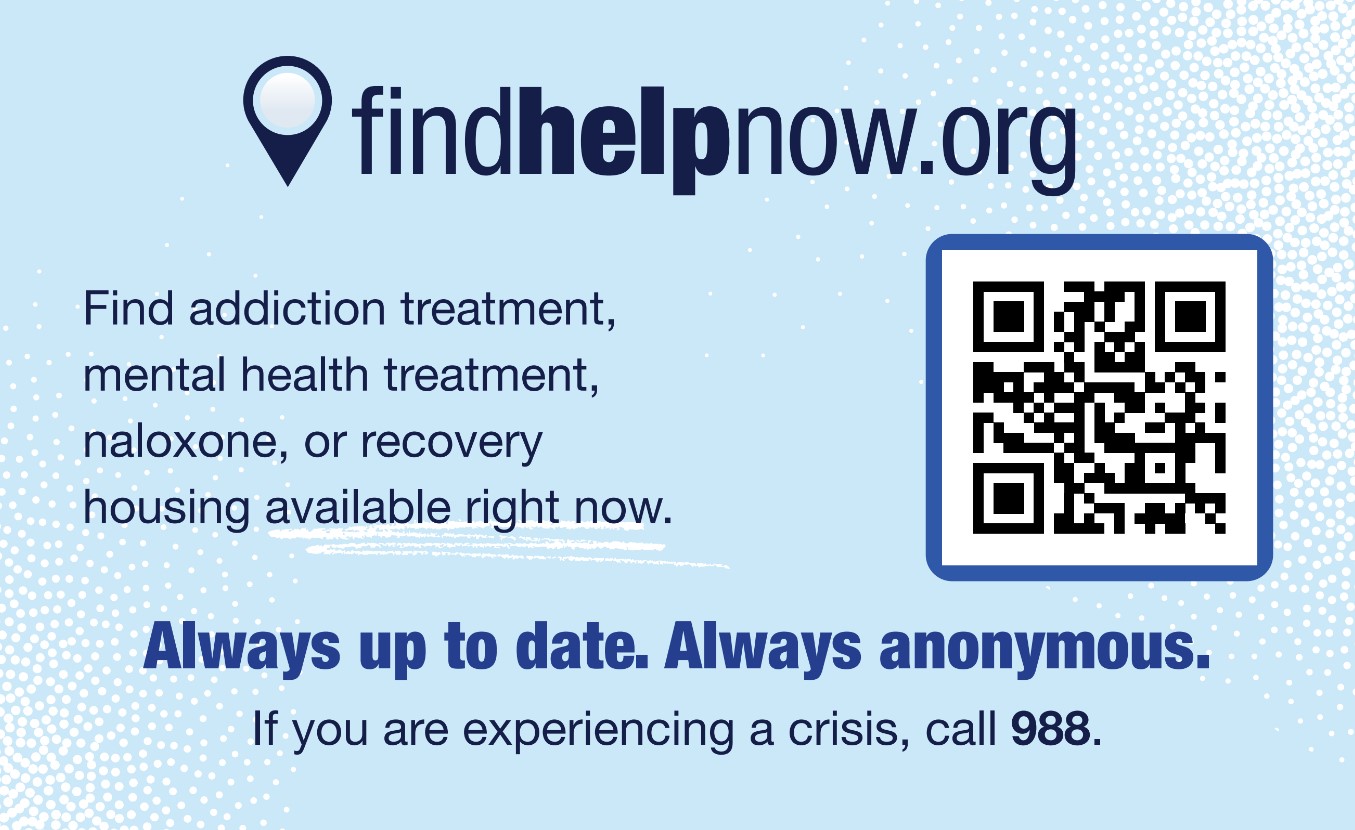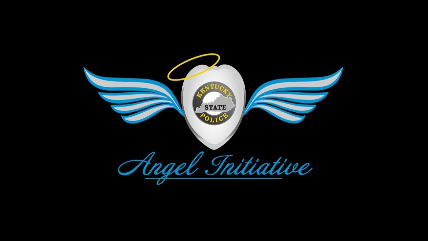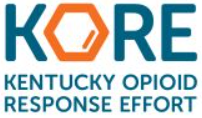Treatment and Recovery Resources

Find Help Now
If you or someone you know needs information on substance use disorder, recovery housing, or mental health, please visit www.findhelpnow.org to search for available treatment slots and recovery beds, and local community resources available now across Kentucky.
Start Here
Operation Unite

1-866-90-UNITE (1-866-908-6483)
Operation UNITE provides a toll-free Treatment Referral & Help Line for anyone seeking assistance with a substance use disorder or to inquire about qualifying for a UNITE Treatment Voucher. This line is answered by a UNITE treatment team member during normal business hours, 8 a.m. to 5 p.m., Monday through Friday. After hours, please leave a message and a staff member will call you back the next business day.
Individuals seeking treatment for themselves or others – as well as family members who have questions or are in need of support – can call the referral line to learn about available treatment programs in the region and the appropriate steps they must take in order to enter a program that will meet their needs. All calls are kept confidential.
Through UNITE’s treatment initiative, individuals seeking help can receive information about short- or long-term treatment programs, Drug Court, or After-Care Support Groups. Low-income individuals living in UNITE’s 32-county service area may qualify for a UNITE Treatment Voucher to help cover the costs of residential treatment for drug-related addictions.
Learn More
KSP Angel Initiative

Walk in. Ask for help. It's that easy!
Just show up at any the 16 KSP Posts across the Commonwealth. You can call ahead of time to schedule a meeting.
What will happen:
An "Angel" at the post will meet you and connect you with one of the many treatment centers with health professionals who are experts in helping individuals with substance use disorders.
Watch Video
Get Help Lex

Get Help Lex is an on-line resource for people seeking facilities and services for substance use disorder (substance abuse/addiction) in or around Lexington, Kentucky.
Get Help Lex is a tool to help you find a substance abuse treatment program for yourself and others. It's an informational tool ONLY. If you are experiencing a medical emergency, please call 911.
gethelplex.org
UNSHAME Kentucky is a statewide campaign to destigmatize opioid use disorder (OUD) by providing education on OUD-related topics and sharing the stories of people in recovery, their friends and family, and people that work in the opioid use field. By learning their stories, we come to understand that opioid use disorder is something that can affect any of us and that no one should struggle with it alone.

Kentucky Opioid Response Effort (KORE)
Addressing
Kentucky's opioid use disorder epidemic is a top priority across all
levels of government and public and private partners. While Kentucky has
made great strides, much work remains.
The purpose of the
Kentucky Opioid Response Effort (KORE) is to implement a comprehensive
targeted response to Kentucky's opioid crisis by expanding access to a
full continuum of high quality, evidence-based opioid prevention,
treatment, recovery, and harm reduction services and supports in
high-risk geographic regions of the state.
KORE offers Kentucky an opportunity to dedicate much-needed resources to address five overarching goals:
- preventing opioid misuse and abuse
- increasing access to OUD treatment services, including Medication- Assisted Treatment
- increasing
the availability of recovery support services designed to improve
treatment access and retention and support long-term recovery
- increasing availability of naloxone;
- enhancing statewide coordination and evaluation of healthcare and public safety strategies targeting opioid misuse and overdose.
For more detailed information on The Kentucky Opioid Response Effort, click here.
Recovery Kentucky was created to help Kentuckians recover from substance abuse, which often leads to chronic homelessness. There are 13 Recovery Kentucky centers across the Commonwealth. They are in Bowling Green, Campbellsville, Erlanger, Florence, Grayson, Harlan, Henderson, Hopkinsville, Owensboro, Paducah, Richmond, Somerset, and Knott County. These centers provide housing and recovery services for up to 2,000 Kentuckians across the state.
The Recovery Kentucky centers were designed to reduce the state's drug problem and resolve some of the state's homeless issues. They help people recover from addiction and gain control of their lives so they can eventually reside in permanent housing.
Thousands of Kentuckians experience homelessness each year. Many of them are "chronically homeless," meaning they remain homeless for extended or repeated periods of time, often due to chemical dependency and other special needs. While the chronically homeless only represent a fraction of the homeless population, they consume over 50 percent of homeless resources.
As supportive housing projects, each Recovery Kentucky center uses a recovery program model that includes peer support, daily living skills classes, job responsibilities, and establishes new behaviors.
This type of supportive housing and recovery program is proven to help people who face the most complex challenges to live more stable, productive lives. It has been demonstrated successfully by both the Hope Center in Lexington and The Healing Place in Louisville, which were models for the program and named "A Model That Works" by the U.S. Department of Health and Human Services.
Without a stable place to live and a support system to help them address their underlying problems, most homeless people who also suffer from substance abuse and addiction bounce around between shelters, public hospitals, prisons, psychiatric institutions, and detoxification centers. Recovery Kentucky was designed to save Kentuckians millions in tax dollars that would have been spent on emergency room visits and jail costs.
The Division of
Probation and Parole is responsible for overseeing the Reentry Service Center
(RSC) program. The RSC program accommodates state inmates, parolees, &
probationers and is designed to help them integrate back into society after
their incarceration. Inmates that qualify for this program have obtained their
community custody qualification and are near their parole eligibility date.
These facilities are privately owned entities that are contracted by the
Kentucky Department of Corrections to provide housing, care, & programming.
This integration program allows an offender to become reacquainted with their
families and the community and gives them a head start seeking employment.
These facilities offer vocational training programs, educational opportunities,
and cognitive behavioral programs that can give an offender better options once
their incarceration or supervision has ended. We also have RSC facilities that
offer addiction services programing to help those offenders that battle
substance use disorders.
The Average Daily Population of residents participating in the Recovery
Kentucky Center program is approximately 503.
Substance Abuse and Mental Health Service

You can use the Substance Abuse and Mental Health Service (SAMHSA) Behavioral Health Treatment Services Locator (a confidential and anonymous source of information for persons seeking treatment facilities in the United States or U.S. Territories) to find resources in your area.
Find a Treatment Center

Department for Behavioral Health, Developmental and Intellectual Disabilities
Our mission is to provide leadership, in partnership with others, to prevent disability, build resilience in individuals and their communities, and facilitate recovery for people whose lives have been affected by mental illness, intellectual disability or other developmental disability, or substance abuse.
Visit Site 502-564-4527